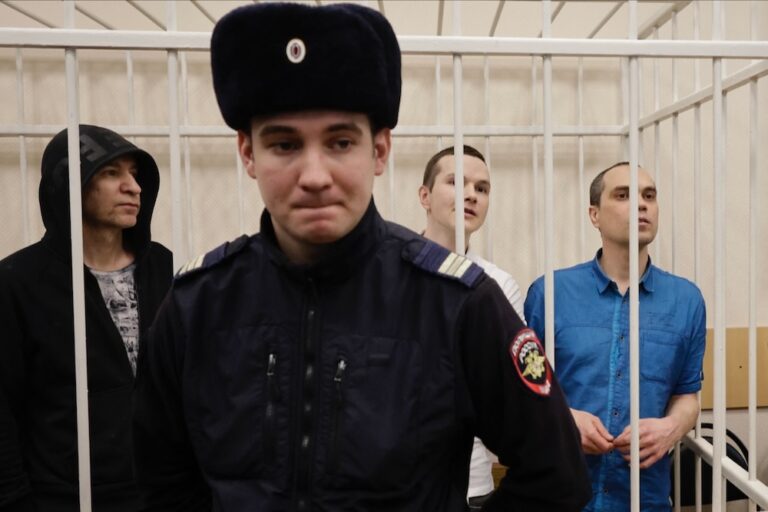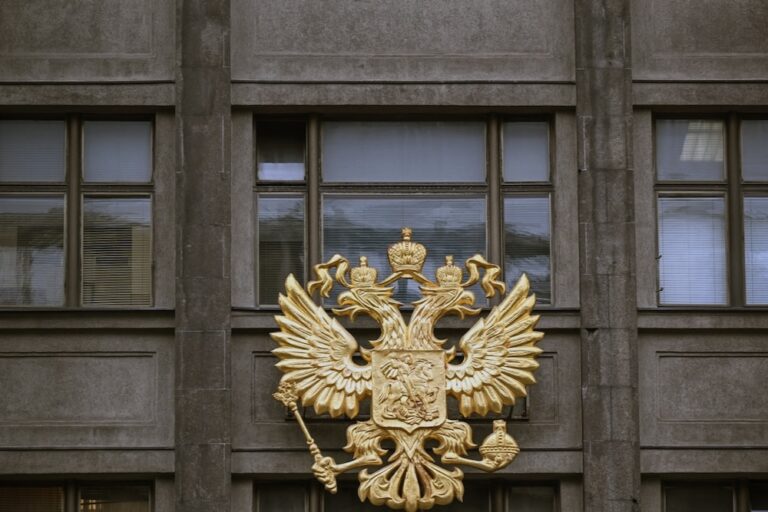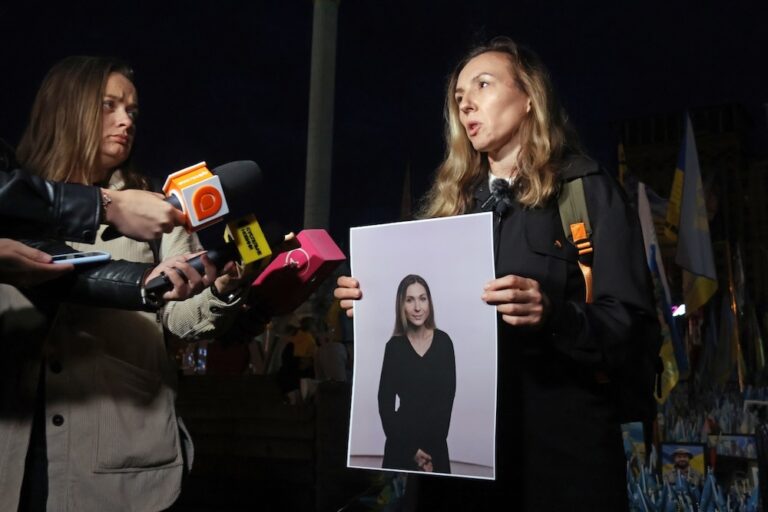(IPI/IFEX) – The following is an IPI press release: Vienna, 26 June 2001 Russia’s First Year on “IPI Watch List”: IPI Director sees Little Sign of Improvement Speaking during the “World Congress for Information Cooperation” conference in Moscow on 26 June, the Director of the International Press Institute (IPI), Johann P. Fritz, expressed concern over […]
(IPI/IFEX) – The following is an IPI press release:
Vienna, 26 June 2001
Russia’s First Year on “IPI Watch List”: IPI Director sees Little Sign of Improvement
Speaking during the “World Congress for Information Cooperation” conference in Moscow on 26 June, the Director of the International Press Institute (IPI), Johann P. Fritz, expressed concern over the fact that Russia has remained on the “IPI Watch List” for exactly one year.
“Unfortunately, one year after the decision to place Russia on the “IPI Watch List”, there have been almost no signs of improvement,” Fritz said. “Indeed, it would appear that recent developments have further eroded the level of press freedom achieved by Russia since the break up of the Soviet Union in 1991.”
The IPI Director said that there is an urgent need to focus more attention on the situation for the media in Russia’s regions where journalists continue to face the perennial threat of violence. “It is a sad fact of present-day Russia that, on many occasions, the perpetrators of these crimes escape with impunity,” Fritz said. “Self-censorship is widespread in the regions as a result of physical attacks and threats against journalists, this is an intolerable situation, and one that needs to be addressed in a serious and constructive manner.” Moreover, journalists reporting on developments in Chechnya have been severely restricted in their operations by the authorities and a number of journalists critical of Russia’s military engagement in the break-away republic have been arrested.
In addition, Russia’s economic circumstances have had a detrimental effect on the media in the regions. Many media outlets are dependent on subsidies provided by the authorities and other powerful institutions. Journalists continue to be subject to heavy political pressure and are confronted with demands for favourable news coverage by regional leaders. “In order for the situation to improve there is a need for the government to work in close cooperation with journalists and civil society groups within Russia and to seriously consider their recommendations and address their concerns in a genuine and constructive manner,” Fritz added.
Recently, there have also been worrying developments with regard to the independent media, including the April takeover of Media-Most by the state-linked natural gas company, Gazprom. Using unpaid debts as the justification for its action, Gazprom replaced management at Media-Most television station NTV and appointed several of its own staff to key positions in the company, effectively gaining control of the last independent national television channel in Russia.
Even though, as a major creditor of Media-Most, Gazprom claims that its actions have been carried out on financial grounds and that the takeover is not politically motivated, IPI will closely monitor future developments, taking into account Gazprom’s close connections to the state and the previous record of official harassment of Media-Most outlets. The developments at Media-Most are especially worrying in the light of other measures undertaken by the authorities seemingly with the aim of exerting control over news content.
One example is the SORM (operational research system) project, a Russian Internet surveillance system, which requires Russian Internet service providers to install a technological infrastructure giving the secret police (FSB) on-line access to information exchange. This would allow the authorities to intercept, view, and even halt the e-mail messages of Internet users, an ominous prospect when seen in the context of the adoption of the Doctrine on Information Security which advocates far greater state influence on the flow of information and the media.
The 23 June 2000 decision by IPI to place Russia on the “IPI Watch List” was taken in response to several incidents of harassment and intimidation of the Russian media, which led to a deterioration in press freedom in Russia. The IPI Executive Board evaluates the status of countries on the “IPI Watch List” twice a year to see if there has been sufficient progress to warrant their removal or if there is a need for renewed efforts by IPI to bring about change. The next decision regarding Russia will be taken by the IPI Board on 19-21 October.
For more information on Russia and the “IPI Watch List” see: www.freemedia.at/watch_list.htm


